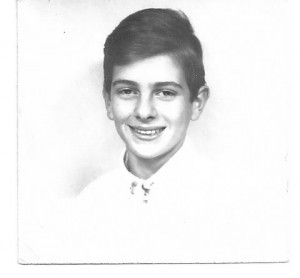 Once American and British soldiers were in Brussels they became a common sight almost everywhere. However, both the Belgians and the refugees in my little crowd were often surprised at their behavior. No one could remember ever seeing drunken German soldiers. The same couldn’t be said of the British and American troops stationed in the city who were often seen weaving their way uncertainly out of the bars, taverns and brasseries, arm in arm to provide additional stability, staggering down the streets and boulevards of Brussels. This is not to say that all American and British troops behaved in this manner, but it was odd to see that at all.
Once American and British soldiers were in Brussels they became a common sight almost everywhere. However, both the Belgians and the refugees in my little crowd were often surprised at their behavior. No one could remember ever seeing drunken German soldiers. The same couldn’t be said of the British and American troops stationed in the city who were often seen weaving their way uncertainly out of the bars, taverns and brasseries, arm in arm to provide additional stability, staggering down the streets and boulevards of Brussels. This is not to say that all American and British troops behaved in this manner, but it was odd to see that at all.
In marked contrast to all that, not far from where my mother and I lived, there was a gathering place for servicemen, something like a USO, possibly it even was a USO, where only non-alcoholic beverages were served and the soldiers were often engaged in doing good deeds, organizing parties for the children of the neighborhood, providing gifts of clothing, food, and toys, and generally creating a wholesome atmosphere. They were really good guys, and what I did probably didn’t cause them any real harm, but it wasn’t nice, especially after what they had done for us.
My elementary school needed money. They weren’t the only ones. I also needed money, mostly because it was something I almost never had, and there were so many lovely things I could have bought had I had some money. I had also been exposed very briefly to the life of one of my classmates when he invited me to his home. He actually lived in a modern building with an elevator and with both his parents. He was learning to play the trombone, and the family read newspapers and solved crossword puzzles together. There was a softness to the atmosphere in that home that was as tangible to me as the harshness of my own environment in the one room I shared with my mother and our few pieces of unpainted furniture.
Ecole Primaire Charles Buls organized a fund raiser. What it involved was students selling small, wallet-sized calendars imprinted with the school logo for one franc a piece to anyone willing to pay for such an item. The first day, I was a good kid, charging just one franc for my calendars as I sold them in front of the USO, and exchanged the money for more calendars the following day in school, when it occurred to me that I could sell those calendars for two francs a piece, give the school its one franc share, and retain a sizable profit. When I told my friends, the Moskowitz brothers, Helmut and Gerard, what I had done, they looked at me as if I was crazy. How could I charge so little? They told me to go back to the same spot the following day, in front of USO, and tell the soldiers they could have my calendars for whatever they were willing to pay. I didn’t quite believe that this would work, but I was surprised by the results. Some men paid 10 francs, some twenty, and some even more. By the end of the day, I had enough money to pay the school its pittance, and to buy myself a watercolor set, with which I painted some really awful, messy, brown pictures.

I guess we shouldn’t be surprised that two of your children became entrepreneurs.
Gosh, Alex, you were quite the little capitalist. You had a such a good start. What happened ?
I think it shows the opposite inclination about Alex. Reading the introduction to Alex’s venture into what could be called “capitalism” or “entrepreneurship”, I thought – what did he do – getting scared that he stole (perhaps stuffing stuff into his pockets) from the USO center. His characterization “and what I did probably didn’t cause them any real harm, but it wasn’t nice, especially after what they had done for us”, shows just how anti-capitalist Alex really is in his core.